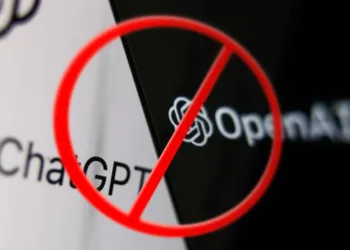As artificial intelligence technology continues to evolve, the use of AI-generated content has become more prevalent in various fields, including advertising. However, the emergence of ChatGPT ads raises significant ethical questions. This article explores the implications of utilizing AI in advertising, dissecting the ethical concerns and potential ramifications associated with this trend.
Understanding ChatGPT and Its Role in Advertising
What is ChatGPT?
ChatGPT is a sophisticated language model developed by OpenAI. It can generate human-like text based on the input it receives. Businesses are increasingly leveraging this technology to create ads, product descriptions, and promotional content.
How ChatGPT Ads Work
- Automation of Content Creation: Using AI to generate advertising copy can streamline the process and reduce costs.
- Targeted Messaging: Ads can be tailored based on data analytics, allowing businesses to reach specific demographics more effectively.
- 24/7 Availability: ChatGPT can generate content on-demand, ensuring that companies can maintain a consistent marketing presence.
Ethical Concerns Surrounding ChatGPT Ads
As the use of AI in advertising becomes more commonplace, several ethical issues arise:
Transparency and Disclosure
- Lack of Disclosure: Consumers may not be aware that an advertisement was created by an AI, which raises questions about transparency.
- Manipulation of Trust: The human-like quality of AI-generated content can lead to potential manipulation and exploitation of consumer trust.
Authenticity and Deception
- Questionable Authenticity: Ads that pass off AI-generated content as human-made can lead to misconceptions about product efficacy and company values.
- Deceptive Practices: If the ad content exaggerates benefits or misleads consumers, it can be considered unethical.
Data Privacy
- Use of Personal Data: AI advertisements often rely on vast datasets to create targeted content. This raises concerns about how personal information is being used.
- Consent Issues: Consumers may not realize their data is being utilized in this manner, questioning the validity of their consent.
Regulatory and Industry Standards
Current Regulations
- Lack of Specific Laws: There are no comprehensive regulations specifically targeting AI-generated advertising, leading to grey areas in ethical compliance.
- Guidelines from Industry Bodies: Various advertising and marketing organizations are beginning to establish standards, but uniform implementation remains a challenge.
Importance of Ethical Guidelines
- Setting Boundaries: Establishing ethical guidelines can help organizations navigate the complexities of AI-generated content.
- Enhancing Accountability: Clear standards can promote accountability among businesses utilizing AI technologies, ensuring that ethical practices are prioritized.
The Future of ChatGPT in Advertising
As AI continues to advance, the conversations surrounding ethical advertising will become even more crucial. Businesses must consider the implications of using AI like ChatGPT in their marketing strategies.
Balancing Innovation with Responsibility
- Consumer Education: Companies need to ensure that consumers are educated about the use of AI in their advertising efforts.
- Investing in Ethical Training: Organizations should train their teams on ethical use and the potential consequences of AI-generated content.
Collaborative Efforts
- Industry Collaboration: To address ethical challenges, companies should collaborate with regulators, ethics boards, and consumers.
- Public Discourse: Encouraging public discussion on the implications of AI in advertising can foster greater understanding and awareness.
In summary, the use of ChatGPT for ads presents a complex interplay of innovation and ethical dilemmas. Balancing these elements is essential for fostering trust, accountability, and a responsible approach to advertising in the age of AI.









